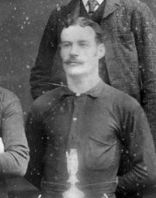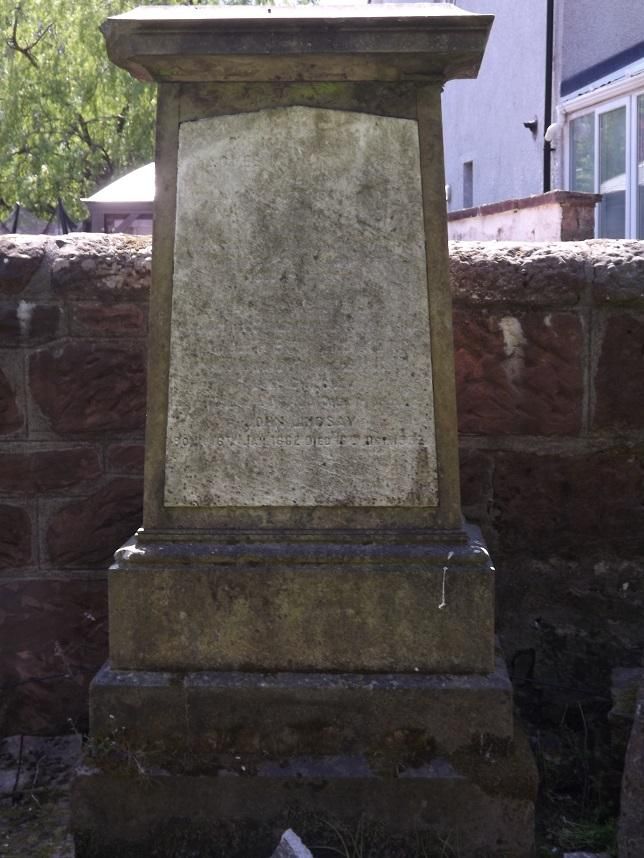John Lindsay

John Lindsay, born in 1882 in Renton, the son of a tailor, did not have an each start in life. Both his parents were dead by the end of the decade and he and his sister were brought up by their uncle on Main St. and then at 1, Thimble St.. At nineteen he was a Calico Printer, at twenty-nine a field-worker, still in the village and married to Glasgow-girl, Isabella Kerr. They had wed in 1890 and were to have nine children, of whom seven survived, a daughter and six boys.
Meantime in 1883 he had begun playin in goal for Renton, the first of a six-year stay including two Scottish Cup wins and a runners-up medal. And he would also win a single cap before tempted South. In 1889 he signed professionally for Accrington finishing mid-table.
However, his stay was to be one season only, at which point he returned North. But it was right into a ban for professionalism, which was rescinded after a year forcing him to take a break from the game. Only in 1891 was he able to restart with his home club once more, this time for two seasons plus a call-up for Scotland in 1892, which along with other Renton players he declined, and in 1893 two more accepted caps.
Perhaps it was the caps but, now aged thirty-one, Lindsay then joined Edinburgh club, St. Bernard's, as it stepped up to the Scottish First Division. Without him in goal Renton would be relegated as Lindsay's new club finished third and at which point a couple more seasons between the sticks in Auld Reekie might have been expected. However, Lindsay retired, settled back in Renton and turned instead to refereeing.
That might than have been expected to be it. But clearly back in the village with the departure in 1896 to Rangers of Matthew Dickie, Lindsay's replacement in goal, pressure was applied on John for a return; pressure he could not resist, albeit for just a single and unsuccessful season. Now outwith the Scottish League Renton, having been Scottish Cup finalist and semi-finalist in the two previous had suffering badly from other retirements and other departures to clubs both sides of the border. The result was defeat in the first round of the 1896-7 Cup 5-1 to St. Mirren and season more or less over in January.

With that it seems finally for Lindsay enough was enough. The family was growing and clearly the decision was taken to change profession and move to Dumbarton, where he worked in the ships-yards as a crane-man and then an engine-driver. And it was in Dumbarton he was to stay for the rest of his life, a widower after the death in 1917 of his wife. He himself would die in 1932 at the age of seventy to be buried in the Milburn Churchyard, Renton.
Birth Locator:
1862 - Burns St., Renton, Dunbartonshire
Residence Locations:
1871 - 100, Main St., Renton, Dunbartonshire
1881 - 1, Thimble St., Renton, Dunbartonshire
1891 - 3, Livingstone Place, Renton, Dunbartonshire
1901 - 2, Park Place, Dumbarton
1921 - 147, Glasgow Road, Dumbarton
1932 - 109, Glasgow Rd., Dumbarton
Death Locator:
1932 - 109, Glasgow Rd., Dumbarton
Burial Locator:
Milburn Churchyard, Renton, Dunbartonshire
Back to Renton,
or the SFHG Home page